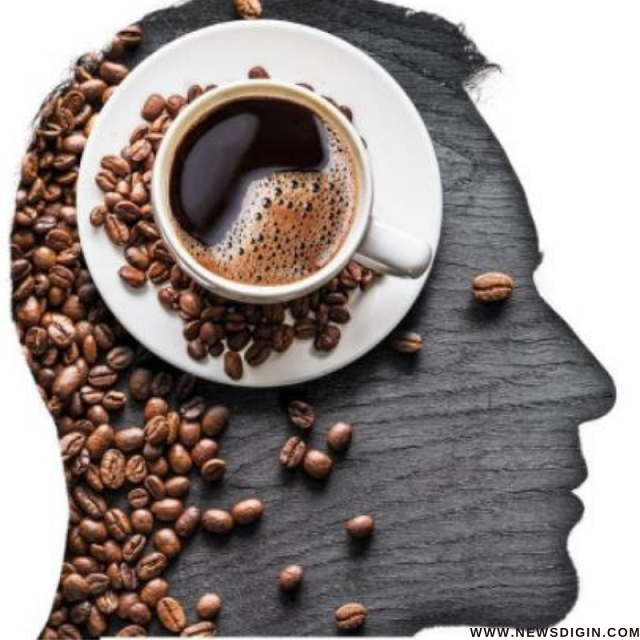
Stay Caffeinated | How Much Time Caffeine Last In Our Body?: Hey guys today I am sharing some useful information about how much time caffeine lasts in our body. may this information helps you and blowup your mind.
Caffeine is a stimulant that acts quickly on your central nervous system. It can raise your blood pressure and heart rate, give you more energy and improve your mood.
Caffeine’s effects may be felt immediately after consumption, and they will last for as long as the caffeine is present in your body.
Stay Caffeinated | How Much Time Caffeine Last In Our Body?

How Long Do The Symptoms Last?
Caffeine has half-life of up to 5 hours, the half-life of a substance is the amount of time it takes to be reduced to half its original amount.
So, if you consume 10 milligrams (mg) of caffeine, you will still have 5 mg of caffeine in your body after 5 hours.
Caffeine’s effects peak between 30 and 60 minutes after consumption. It is when you are most likely to feel the “jittery” effects of caffeine.
You may also urinate more due to the liquid volume consumed and caffeine’s mild diuretic effect.
The other half of the caffeine you consume can keep you awake for much longer than 5 hours.
Caffeine sensitivities can cause symptoms to last for several hours or even a few days after consumption.
Caffeine should not be consumed at least six hours before bedtime due to its long-term effects. So, if you are going to bed at 10:00 p.m., your last round of caffeine should be no later than 4:00 p.m.
Caffeine Is Found In What Foods And Beverages?
Caffeine is a naturally occurr substance that found in many plants, including coffee, cocoa beans, and tea leaves.
Artificial forms of caffeine are also commonly added to sodas and energy drinks.
Avoid the following caffeine-containing foods and beverages within six hours of your expected bedtime:
- Green and black tea
- Coffee and espresso beverages
- Chocolate
- Energizing beverages
- Alcoholic beverages
Caffeine-containing over-the-counter medications, such as Excedrin
Decaffeinated coffee contains trace amounts of caffeine, so if you are sensitive to caffeine’s effects, you should also avoid it.
Caffeine And Lactation
Caffeine consumption during pregnancy has long been advised by experts to be avoided. It is because there is a risk of miscarriage or congenital disabilities.
While these effect, there are no longer relevant after birth, there are some precautions to take if you intend to consume caffeine while breastfeeding.
Caffeine can be passed on to your baby through breast milk. When breastfeeding, the March of Dimes recommends limiting caffeine consumption to two cups per day.
If you consume other caffeine-containing items throughout the day, such as soda or chocolate, you may need to reduce your intake of coffee and other highly caffeinated beverages.
Caffeine consumption over 200 mg per day may have unintended consequences for your baby. They may have difficulty sleeping and may become fussy.
Caffeine Withdrawal Symptoms
If you are accustomed to drinking caffeine, you may experience withdrawal symptoms if you discontinue use.
Withdrawal symptoms may occur within 12 to 24 hours of your last caffeinated item. Among these symptoms are:
- A migraine (the most common symptom)
- Depression
- Anxiety
- Drowsiness and exhaustion
Caffeine withdrawal symptoms usually go away within 48 hours. However, if you’re used to consuming large amounts, quitting cold turkey may exacerbate your withdrawal symptoms.
The most effective way to eliminate caffeine is to reduce the amount you consume daily.
You can reduce your intake of caffeinated products, or you can swap out specific items. For example, you could swap one cup of coffee per day for one cup of green tea.
In Conclusion
Caffeine is only one method for increasing alertness and combating sleepiness. Because of the potential side effects, you should limit your daily consumption to 300 mg per day. It is approximately 3 cups of small, regular roasted coffee.
It’s also essential to think about other natural ways to boost your energy levels without using caffeine. Consider the following options for assistance:
- Drink plenty of water.
- Sleep minimum at least 7 hours per night.
- If possible, avoid taking naps during the day.
Consume various plant-based foods, which may help provide energy without the crash associated with processed foods.
Daily exercise is recommend, but not too close to bedtime.
Consult your doctor if you are frequently fatigue. You may suffering from an undiagnosed sleeping disorder.
Certain underlying conditions, such as depression, can also have an impact on your energy levels.
Also read: